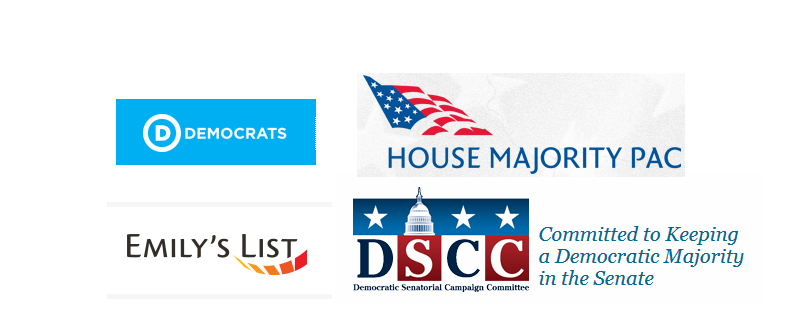A few weeks ago I asked if the 2014 elections would expose the limits of political campaigning, and guess what: they did. Democrats busted their butts on the ground this year, and unlike 2010, they didn’t lose for lack of trying. Even before the final weekend push, for instance, Democrats had used the Voter Activation Network to target over 50% more voter outreach than at the same point in the previous midterm campaign (though I was surprised it wasn’t higher).
All for naught, of course — Dems had their hats handed to them. A huge ground game and epic fundraising couldn’t make up for a bad map, a bad year and (I’d argue) some fundamentally bad strategic decisions made at the top of campaigns. Whose idea was it to ignore the millions of people who’ve benefited from Obamacare and instead treat health care reform like Ebola? Democrats COULD have embraced the law and highlighted people who were going to the doctor for the first time in years, many of whom were the lower-income white voters who’ve been fleeing the party in droves. Instead, they let the negative messaging about Obamacare go unanswered and were tarred with it anyway.
Likewise with President Obama himself. In an off-year election, Democrats desperately needed their base voters to show up…people who’d voted for Barack Obama twice. Hiding from him wasn’t going to keep the Republicans from tying candidates to him, and in practice it made him look weak and made them look cowardly. Nobody bought it! All it did was undercut candidates’ credibility and depress their supporters. The results? Just look at Allison Lundergen Grimes, who got fewer votes in Kentucky in 2014 than Obama did in 2008.
Another mistake? NOT running on an improving economy. It’s true that the benefits have trickled down to everyone, and many people FEEL as though the country isn’t recovering, but it’s also true that Democrats didn’t do much to change that narrative. Why not run some ads to highlight things that ARE working? My basic question about all of this: can someone please tell me how embracing Obamacare, Obama and the economy could possibly have made Democrats do WORSE than they actually did? Those decisions are defensible if you’re talking about a single candidate, but they amount to political malpractice when EVERY candidate does it. A tragedy of the commons! And for Democrats, a tragedy at the ballot box.
And while it’s possible that endless “we’re going to lose” fundraising emails also played a role in persuading Democratic voters to stay home last weekend, I think the on-the-ground staff mainly did their jobs right. They were buying ads efficiently and in bulk and knocking on doors across the country, and they didn’t lack for bodies: DC cleared out in the two or three weeks before the election, with many of the experienced field staff I know heading out to the states for the final push. But good decisions and hard work on a micro level cannot make up for bad conditions and terrible strategy at the top, since campaign mechanics can only do so much:
I think we CAN point to elections in which good organizing and outreach made critical difference — Virginia’s 2013 statewide elections come to mind, for instance, and you can make a good argument that Mitt Romney would have beaten Barack Obama in 2012 had the latter not run an epic data-targeted turnout operation. But most field organizers I’ve spoken with over the years talk about even the best grassroots outreach being good for maybe two or three percentage points, enough to win a tight race but not enough to close the gap if the fundamentals put you behind by a whole lot more.
Fundamentals put Democrats behind by a whole lot more in 2014, and bad strategic decisions kept them there. Welcome, Majority Leader McConnell.
– cpd

